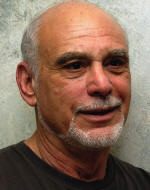|
APPROACH TO SCREENWRITING
If you're looking for screenwriting
formulas, theories, rules, recipes, blueprints...
If you believe that arcs, back
stories, plot points, and inciting incidents are the keys to unlocking
your imagination and writing an original screenplay...
You've clicked on the wrong website.
If you've got a specific story
you're dying to tell as a movie, and want to mine all its dramatic and
comic opportunities, all its discoveries, surprises, and possibilities...
"Throw away the lights, the
definitions, and say of what you see in the dark"
Wallace Stevens
The only way you can learn to write a screenplay is
by writing one. And keep writing it...until you nail it and get it right.
If you're not dying to write it...If it doesn't
excite or haunt or obsess or delight you...If it doesn't drive you crazy
and demand to be written...don't write it.
The screenplay is what you travel through to get to
the heart of your story.
You get there by...
Learning to trust and follow your instincts.
Asking the right questions.
Grounding the world you're creating in its own
particular truth and reality. Obeying its own particular laws and logic.
Listening and paying attention to what your
characters and story are telling you.
Recognizing what's true and what's false.
Knowing the facts you need to tell the story and
never telling the audience more than they need to know before they need
to know it.
Going after what your characters want and building
the roadblocks to stop them from getting it.
Finding the right pace, pitch, and rhythm.
Feeling the screenplay breathe.
Writing dialogue that's action - as visceral
as a car crash, a kiss, a punch in the gut.
Creating situations that take your characters to a
new, dangerous, and unexpected place - an emotional and moral crossroad
where their world is turned upside down, threatening and transforming
who they think they are, forcing them to choose, act...
Until what you've navigated and arrived at is the
organic and inevitable narrative that taps into what the poet William
Carlos Williams calls "the secret spring of all our lives" and catches
"the evasive life of the thing."
|
